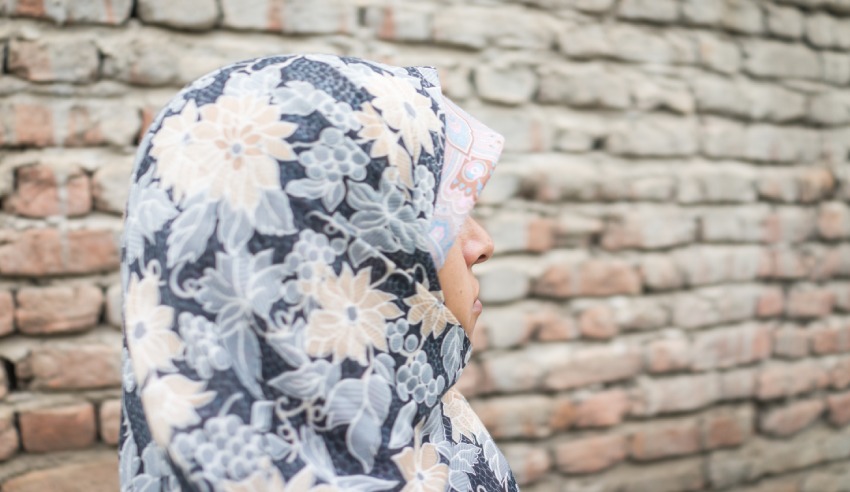A report focusing on migrant and refugee women’s safety in Australia has been launched, offering key findings into domestic and family violence.

The Migrant and refugee women in Australia: The security and safety study is a landmark national report focusing on domestic and family violence and the safety of refugee and migrant women in Australia. Conducted jointly by Harmony Alliance and the Monash Migration and Inclusion Centre, the study is one of only a few in the world to comprehensively focus on migrant and refugee women’s trust in communities and institutions, as well as their experiences with victimisation.
Ms Nyuon is a lawyer, human rights advocate and chair of Harmony Alliance: Migrant and Refugee Women for Change. After being born and raised in refugee camps in Africa, she moved to Australia as a refugee and has since attended university and now works as a lawyer and advocates for human rights, equality and non-discrimination.
“It was only after reaching this country that I finally felt a sense of security and safety and optimism that my future would be great. And sadly, that optimism is not something that we can say [about] many of the women today in our survey report,” she said.
“This is a powerful report. It’s a powerful and comprehensive study that draws on the experiences and the view of nearly 14,000 migrant and refugee women. In other words, it tells you some part of our story.”
Ms Nyuon spoke to the “vast statistical gaps between Indigenous and non-Indigenous people” which spans across healthcare, education and death in custody and discussed some of the key findings in the report. She also recalled abuse she has had to endure, including abuse she has received from an Australian police officer telling her to go back to her own country.
“Members of my family have been subjected to racist abuse and attacks. I’ve seen some of them avoid whole streets just to avoid harassment,” she said.
“I am afraid to even mention these incidents because many people think because of what Australia has given me, I should simply be grateful. Discussions about race, or racism, are seen as biting the hand that fed you. To me, these attitudes reveal and reflect the enduring conditional acceptance of immigrants and the conditional status of our citizenship
“We are conditioned to expect less, and to demand less than the full privileges of our citizenship and enjoyments of belonging.”
The survey, conducted in 2020 during the height of the pandemic, captures some of the impacts of COVID-19 on the lives and safety of migrant and refugee women – and Ms Nyuon said that the findings can be used to inform policy and other measures that will further support migrant and refugee women.
“Some of the findings in this report echoes the experiences of Australian-born women, but others speak to the unique experiences of refugee and migrant women. Although even in that cohort, there are still intergenerational differences between the women,” Ms Nyuon explained.
Over a third of the women surveyed reported having experienced some form of domestic or family violence. The survey also found that women on temporary visas face some specific risks, including high levels of domestic violence and controlling behaviour, specifically relating to their migration status. This included threats of deportation from husbands and partners as well as threats that they’ll be separated from their children, some of whom are Australian citizens.
“We think this is a really important finding. Since to address it, it would require policy makers to move beyond the fragmented support afforded to women on temporary visas and look at structural reforms that truly prioritise the safety of any woman regardless of their visa status,” Ms Nyuon continued.
“Another important finding is that nearly 40 per cent of the women who experienced crimes that were not related to domestic or family violence believe that the biggest reason for assault or crimes they experienced was motivated by bias or prejudice, and that suggests we still have some work to do on the issues of racism and discrimination.
“Finally, one striking trend across the survey was the generational differences in relation to trusting institutions. In terms of crimes that are not related to family violence, our study shows that younger women under the age of 30 experience more generalised victimisation, yet they were less likely than older women to see police as legitimate and trustworthy and more likely to see them as procedurally unjust.”
Ms Nyuon concluded the launch with a note about multiculturalism and what that should look like in Australia’s future.
“As we look forward, I think we would be better served as a country if our search for identity recognised the dilemma of balancing a sense of belonging and home,” she said.
“Multiculturalism is a grand and revolutionary concept, but I think its purpose is really simple: it is to live with each other, without the fear of each other. This means a country where we have a common bond, and where racism is not tolerated. Where women feel safe on the street and in parliament, where they feel safe in their homes.
“A country where a visa status is not a tool for coercive control. What this country decides now, especially in the face of all these challenges, will become the legacy and inheritance of future generations. It will be what we decide it should become.
“I want us to reimagine this country.”

Lauren is the commercial content writer within Momentum Media’s professional services suite, including Lawyers Weekly, Accountants Daily and HR Leader, focusing primarily on commercial and client content, features and ebooks. Prior to joining Lawyers Weekly, she worked as a trade journalist for media and travel industry publications. Born in England, Lauren enjoys trying new bars and restaurants, attending music festivals and travelling.